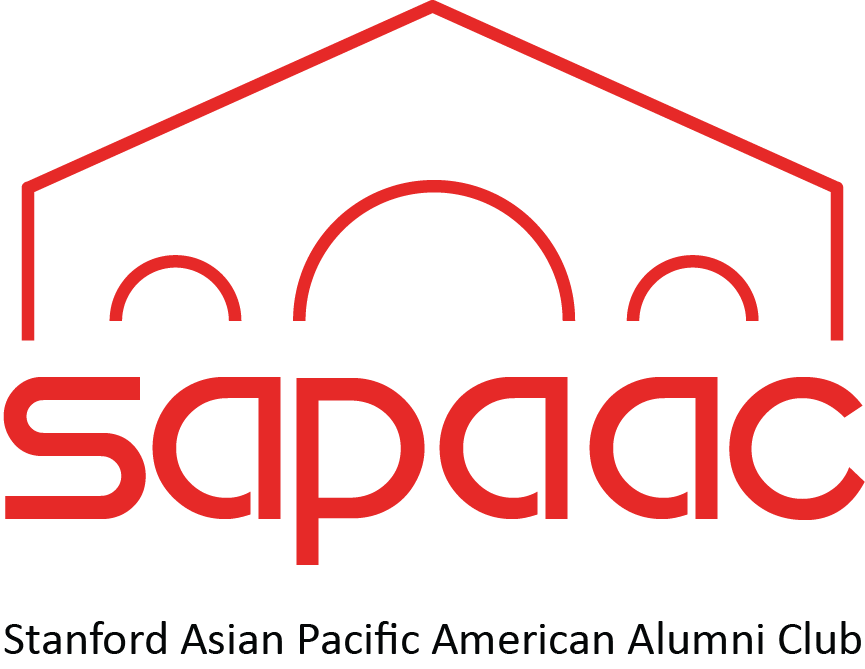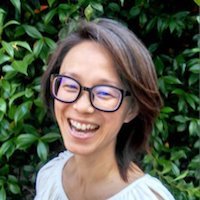SAPAAC / Asian American Studies Coalition
We are a group of Stanford alumni working together to support Asian American Studies at our alma mater. We meet monthly to push forward advocacy, with efforts focused on data collection, public outreach, social media, inter-university cooperation, and liaising with faculty, students and the administration on this critical issue. We welcome you to join our efforts!
Alumni are uniting to secure a future for Asian American Studies at Stanford. More than two decades since the introduction of the Asian American Studies major at Stanford, the program remains under-resourced. Despite high student demand for courses, there are still no tenured, full-time Asian American Studies faculty at the university.
Through advocacy, research, data analysis, and public outreach, our group is organizing SAPAAC’s community of supporters, connecting with faculty and students, and engaging in ongoing communication with the university about why it is crucial to develop a thriving Asian American Studies program.
Please e-mail Kevin Hsu (khsu @ alumni.stanford.edu), Hope Nakamura (hgnak @ yahoo.com) and Risa Shimoda (risa @ theshimodagroup.com) if you are interested in joining our group’s efforts.
Members of the Asian American Studies Coalition at one of our monthly advocacy meetings.
FAQs on Strengthening Asian American Studies at Stanford
Q: What is Asian American Studies?
A: Asian American Studies (AAS) is an interdisciplinary field that critically examines the contemporary and historical experiences and contributions of people of Asian and Pacific Islander descent in the United States. AAS uses a variety of lenses from both the humanities and sciences to research, promote innovative scholarship on, and advocate for issues that are important to an impressively diverse Asian and Pacific Islander population.
Q: What is the current status of Asian American Studies at Stanford?
A: The AAS program at Stanford was founded in 1997 as part of the Center for Comparative Studies in Race & Ethnicity. Institutionalizing ethnic studies programs at Stanford was part of a larger national civil rights movement, and took years of community and student struggle, including student protests in 1989.
Over two decades later, Stanford has failed to adequately support and resource the AAS program. AAS cannot hire its own tenured faculty and relies on professors in other departments and part-time lecturers, such as PhD students from other universities, to teach all courses. Irregular course offerings, courses limited to certain subject areas, and short-term contracted instructors make it difficult for interested students to take AAS classes or major/minor in AAS.
Dr. William Gow, a lecturer housed in American Studies who taught the foundational AAS classes at Stanford for the past several years, left at the end of Summer Quarter 2021 for a tenure track position at CSU Sacramento.
Q: Why should Stanford fully resource Asian American Studies?
A: Our country has witnessed a stunning rise in anti-Asian hate crimes and violence in the Bay Area and around the nation, such as the March 2021 massacre of eight people in Atlanta, GA, six of whom were Asian women. While Asian American scholars at other academic institutions have provided perspectives and marshalled resources to help understand how the current violence relates to our history of anti-Asian racism and exclusionary policies, the academic program at Stanford lacks the resources to engage our students on these important issues. Expressions of concern and visions of access and inclusion ring hollow without material support.
While roughly 25% of its undergraduates identify as Asian or Asian American, Stanford fails to meet the University’s stated pursuit of excellence and leadership when it does not hire or keep tenured or tenure-track faculty who offer a core curriculum grounded in education about the Asian American lived experience and provide education about policies and acts of oppression across communities. In contrast, California state universities and community colleges require all students to take an ethnic studies course.
Q: What can we do, and how can I help?
We want Stanford to fully support and adequately resource the AAS program. This begins with establishing several tenured faculty roles dedicated to AAS.
Want to support or have an idea? Please “like” the “Supporters of Stanford Asian American Studies (AAS)” Facebook Group, or join our LinkedIn group, and get in touch with us at asianamerican.workinggroup@gmail (dot) com
Stay Updated
Make sure you’ve signed up for SAPAAC membership—it’s free!
Click “like” on the “Alumni & Student Supporters of Stanford Asian American Studies (AAS)” Facebook Group or join our LinkedIn group.
Contact khsu @ alumni.stanford.edu or asianamerican.workinggroup@gmail (dot) com to be added to our mailing list for supporters. We send out periodic updates about Asian American Studies and SAPAAC’s advocacy efforts.
Collab with Us
Ready to step up your involvement? Join our once-a-month meetings, where we plan our advocacy around Asian American Studies. Your passion and talent are welcome!
E-mail asianamerican.workinggroup@gmail (dot) com and we’ll schedule an orientation session with you, to help familiarize you with our past and ongoing work, and to welcome you to the group.
Share
Please let your Stanford friends and family know about our cause. Invite them to join the Facebook Group or LinkedIn group. Pass on our e-mail updates about Asian American Studies to them!
Resources on Asian American Studies at Stanford
Op-Ed: What is Stanford’s responsibility in a time of racial reckoning? (The Stanford Daily)
By Judy Tzu-Chun Wu '92, MA '93, PhD '98
"Instead of flourishing, Asian American Studies has largely remained stagnant. Other universities have grown their faculty, established departments and created research institutes. Asian American Studies at Stanford continues to be unstable with sporadic course offerings…Isn’t it time for the University to seriously invest in the educational and research infrastructure of Asian American Studies and other ethnic studies fields? (Read more)
Testimonial: For Stanford, the time is now to grow Asian American Studies
By Mae Lee '92, MA '93
"As an eighteen-year old, I protested for Asian American Studies as a participant in the takeover of 1989. Today, I teach Asian American Studies at a community college. I see the transformative power of Asian American Studies every day." (Read more)
Video: The Takeover (May 15, 1989)
Watch a video reflection about the student takeover in 1989 that resulted in the founding of Asian American Studies at Stanford. Video created by Judy Tzu-Chun Wu, B.A. '92, MA '93, PhD '98, now Professor of Asian American Studies at UC Irvine.



